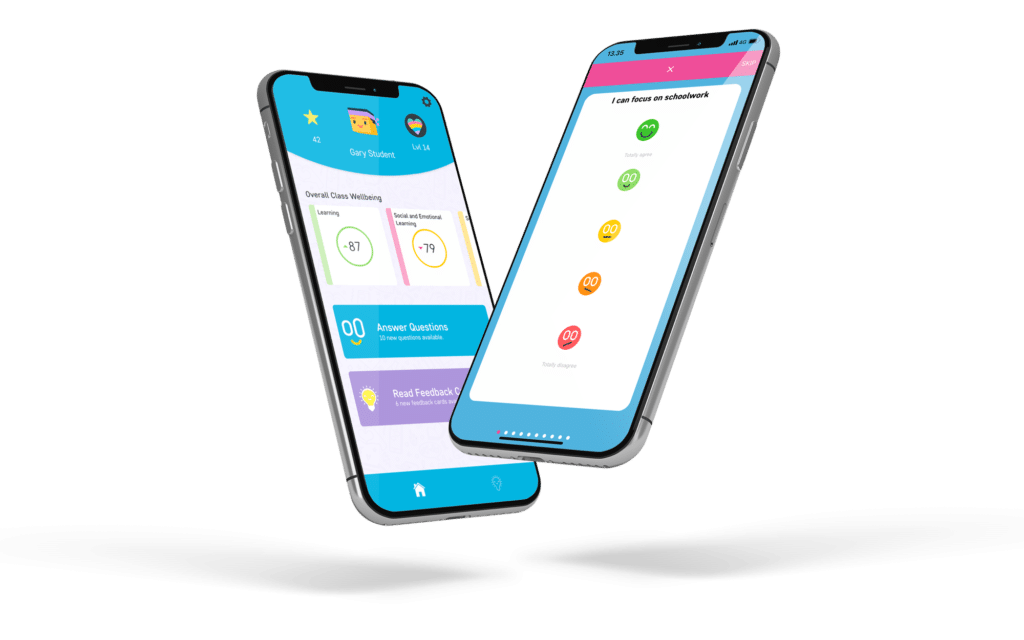Every day, teachers around the world juggle with a thousand things on their mind: following the curriculum, planning ahead while processing the past and keeping track of the present. Add the administrative tasks, cooperation with colleagues, communication with homes. And most importantly: taking care of the students, listening to them and answering each and every one of their needs. No one can focus on everything at the same time. When time is scarce, compromises are only natural. For such professionals as teachers this is often immensely frustrating. It is important to facilitate the communication in schools while deepening the overall understanding of well-being of students.

Let’s break some norms!
Mental health issues are exceedingly common, but too often met with prejudices and false beliefs. School Day promotes mental health awareness by making it a simple part of everyday life: when children examine their feelings on a regular basis and talk about them with their peers, teachers and guardians, they learn that all feelings are okay, and how to deal with them. (Read more about a survey on social and emotional skills.)
We’ve heard so many great stories of classes getting together to discuss their well-being results. As one teacher put it, School Day offers each student a private bubble to mull over in so that when they feel ready, they are welcome to share their thoughts with others. Understanding different moods helps the children understand each other, which contributes to an improved group spirit, learning results and well-being of students.
Creating a global community
There are as many teaching methods as there are teachers, but every one of them ultimately has the same goal: to help children and teenagers find their strengths and place in the world. We bring educational professionals together to share their ideas and knowhow. Practices on one side of the globe often turn out to be pretty awesome elsewhere too.
We listen keenly to what our community tells us. The classroom is where the magic happens, and we want School Day to match up precisely to the issues and concerns that teachers, students and principals have. Many of our features originate from discussions with school professionals. This fall, for instance, we offer the teachers even more flexibility as they get the possibility to compose their own questions alongside our ready-made ones.

How does School Day work to support the well-being of students?
Every week we ask students simple questions on learning, social-emotional skills, social relationships, and wellness. We then analyze the data and provide weekly highlights on what’s going on in the classroom. This way the teachers, principals and district leaders will get reliable and comprehensible data on the current situation as well as long-term trends. We don’t just point at problems but also offer help and support for pressing issues. Our easily implementable lesson plans have already become a hit!
By answering our questions students learn to reflect and process their mood. When they feel safe and confident, it’s easier for them to be vocal about their feelings. In-class conversations about the results will further diminish the taboos surrounding mental health. All students must feel safe at school.
New times, new challenges
Balancing time and resources at schools was never easy, but the pandemic has even added up to the challenges of modern school life. On the other hand, throughout the past year school we’ve seen amazing innovativeness and strength, cooperation between different professionals and administrative levels, homes and the students. We are proud to help ensure that no one is left behind during these tumultuous times. Everyone has the right to feel good and learn better, everyday. Let´s focus on well-being of students!
Get to know School Day wellbeing model

